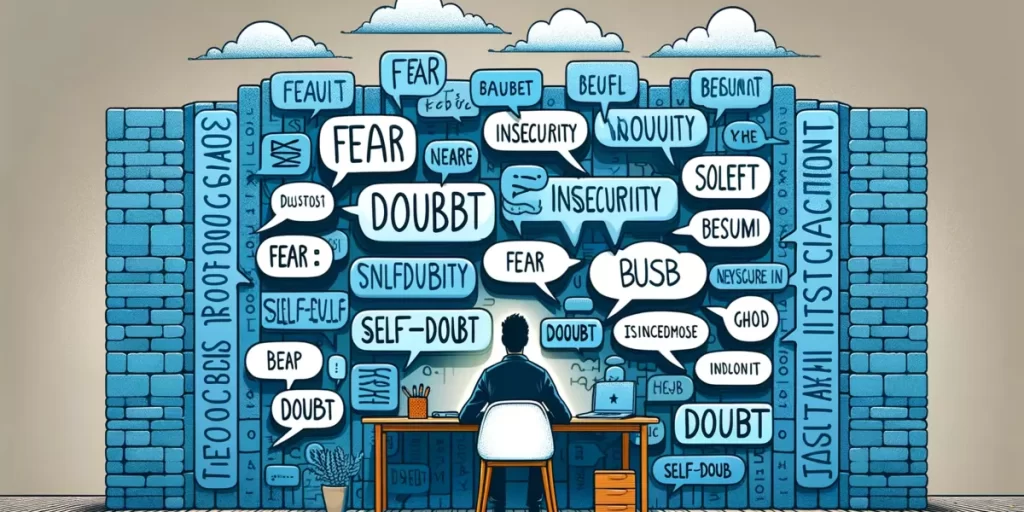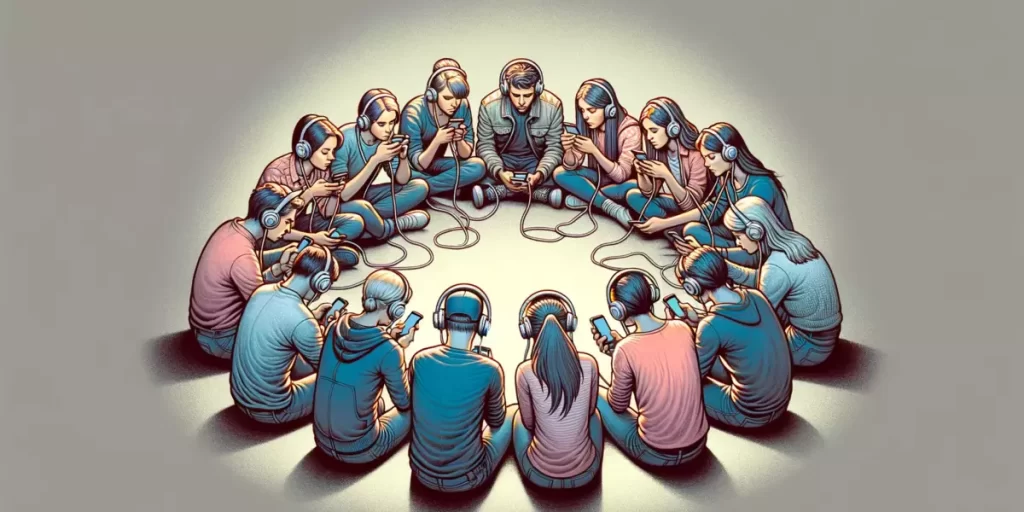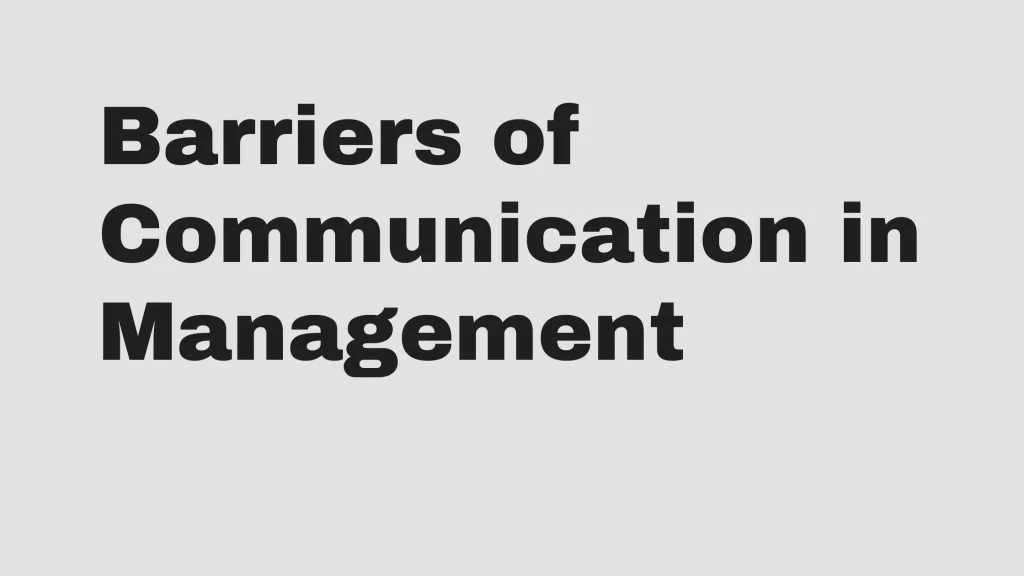Communication is the bridge that connects us, allowing our ideas and emotions to flow freely from one person to another. However, imagine if that bridge has a few broken sections, or perhaps it’s swaying in the wind, making the journey across less straightforward. These disruptions are akin to personal barriers in communication, which can lead to the message being lost or altered along the way. These barriers are the internal struggles or limitations we face, such as self-doubt, stress, or a lack of clarity in our thoughts, that can mute our voices when we want to express ourselves.
When we communicate, we’re not just exchanging words; we’re sharing parts of ourselves. But sometimes, our barriers can make this sharing less effective. It’s like trying to talk through a thick glass wall; our words hit the barrier and bounce back, leaving us feeling unheard or misunderstood. These barriers are not one-size-fits-all; they are as unique as our fingerprints, shaped by our experiences, emotions, and perceptions. They could stem from a fear of judgment that zips our lips in a group discussion, or from a jumble of thoughts that make our speech a labyrinth hard for listeners to navigate.

These personal barriers are the silent whispers telling us we might not be good enough, or the loud echoes of a past failure that keep us from speaking out. They can be the result of a myriad of factors – a cultural background that values silence over speech, a personality inclined to introspection rather than expression, or even a simple lack of practice in articulating our ideas.
Understanding these barriers is the first step towards mending the gaps in our bridge of communication. By recognizing them, we can start to build a toolkit of strategies to overcome these obstacles, ensuring our words and intentions align, and allowing for more meaningful connections with those around us. So let’s explore these personal barriers further, learning to identify and navigate them, not just to communicate but to connect deeply with others.
Contents
- 1 Understanding Personal Barriers to Communication
- 2 How Does Self-Confidence Affect Your Communication?
- 3 What Role Does Fear Play in Hindering Effective Communication?
- 4 How to Overcome Personal Barriers in Communication
- 4.1 Develop Self-Awareness
- 4.2 Build Self-Confidence
- 4.3 Face Your Fears
- 4.4 Recognize and Set Aside Personal Biases
- 4.5 Address Past Negative Experiences
- 4.6 Practice Active Listening
- 4.7 Enhance Emotional Intelligence
- 4.8 Seek Common Ground
- 4.9 Improve Language and Nonverbal Skills
- 4.10 Continue Education and Training
- 5 Conclusion: Embracing Change for Effective Communication
Understanding Personal Barriers to Communication
Personal barriers to communication are internal obstacles that can stem from a variety of sources, such as psychological factors, past experiences, and individual personality traits. Understanding these barriers is the first step toward overcoming them and unlocking the full potential of our interpersonal interactions.
Fear and Anxiety
Fear and anxiety can make it difficult for individuals to express themselves honestly and openly. When we are afraid, we may hesitate to share our thoughts or opinions, fearing rejection or judgment from others. This fear can stem from past negative experiences or a lack of self-confidence in our communication abilities. For example, public speaking is a common fear that can significantly impact an individual’s ability to communicate effectively in various situations.
To overcome fear and anxiety, it is essential to build self-confidence in our communication skills. One way to achieve this is by practicing active listening. By genuinely listening to others and engaging in conversations, we can gain a better understanding of different perspectives and learn from each interaction. Additionally, practicing positive self-talk and seeking feedback from trusted individuals can help boost our self-confidence and overcome the fear of expressing ourselves.
Lack of Self-Awareness
A lack of self-awareness can hinder effective communication as it can lead to misunderstandings and misinterpretations. When we are not aware of our own emotions, intentions, or communication styles, we may unintentionally send mixed signals or fail to express ourselves clearly. This lack of self-awareness can also prevent us from understanding the impact our words and actions have on others.
To improve self-awareness, it is crucial to engage in self-reflection regularly. Take the time to understand your emotions, motivations, and communication preferences. Consider journaling or seeking feedback from others to gain insights into how you come across in your interactions. By understanding yourself better, you can communicate more authentically and avoid misunderstandings.
Preconceived Judgments and Stereotypes
Preconceived judgments and stereotypes can create significant barriers to communication. When we assume things about others based on stereotypes or preconceived notions, we limit our ability to understand and connect with them truly. Stereotypes can lead to assumptions and biases, preventing us from approaching conversations with an open mind and inhibiting our ability to build meaningful relationships.
To overcome these barriers, it is essential to challenge our biases and approach conversations with an open mind. Educate yourself on different cultures, beliefs, and experiences to broaden your understanding. Seek out diverse perspectives and actively listen to others without judgment. By embracing diversity and challenging our assumptions, we can create an environment that fosters open communication and genuine connection.
How Does Self-Confidence Affect Your Communication?
Self-confidence is a vital component of effective communication. But how exactly does it influence the way we interact with others? A lack of self-confidence can fail to convey ideas, an inability to listen effectively, or an avoidance of communication altogether. Conversely, overconfidence might lead to dominating conversations and not valuing others’ input.
What Role Does Fear Play in Hindering Effective Communication?
Fear is one of the most potent emotional barriers to communication. From fear of rejection to fear of failure or being misunderstood, these anxieties can severely impede our ability to express ourselves. Fear can trigger a fight, flight, or freeze response in communication scenarios, none of which are conducive to understanding or being understood. We’ll explore the various fears that are common in communication contexts and how they manifest in our interactions.

How to Overcome Personal Barriers in Communication
Overcoming personal barriers in communication requires a mix of self-awareness, deliberate practice, and sometimes even professional help. Here are several strategies that can help individuals move past these obstacles:
Develop Self-Awareness
- Reflect on your communication skills and identify any recurring issues.
- Ask for feedback from trusted friends, family, or colleagues.
- Keep a journal to document instances where communication felt particularly effective or ineffective.
Build Self-Confidence
- Practice positive self-talk and affirmations to build up your self-esteem.
- Engage in activities where you feel competent and confident to help translate that confidence into your communication.
- Consider public speaking groups like Toastmasters to boost your confidence in a supportive environment.
Face Your Fears
- Start by acknowledging your fears related to communication.
- Expose yourself gradually to the communication situations you fear in a controlled way.
- Consider cognitive-behavioral techniques or therapy if fears are deeply rooted or lead to anxiety.
Recognize and Set Aside Personal Biases
- Actively seek out diverse viewpoints to challenge your preconceptions.
- Practice empathy by trying to understand situations from the other person’s perspective.
- Engage in exercises that help you become aware of unconscious biases.
Address Past Negative Experiences
- Reflect on how past experiences may affect current communication.
- Seek closure on past incidents that may be impacting your ability to communicate effectively.
- Consider professional counseling if past traumas are deeply affecting your communication.
Practice Active Listening
- Focus fully on the speaker, refrain from interrupting, and give them your undivided attention.
- Show that you are listening through nonverbal cues like nodding and maintaining eye contact.
- Summarize what you’ve heard to ensure understanding before responding.
Enhance Emotional Intelligence
- Work on recognizing your own emotions and those of others.
- Practice regulating your emotions, particularly in high-stakes or stressful communication situations.
- Develop skills in managing and resolving conflicts empathetically.
Seek Common Ground
- In conversations, especially where there is disagreement, look for areas of mutual agreement.
- Use these areas as a foundation to build more cooperative and effective communication.
Improve Language and Nonverbal Skills
- Expand your vocabulary to express yourself more clearly and precisely.
- Be mindful of nonverbal signals such as body language, facial expressions, and tone of voice.
Continue Education and Training
- Take advantage of workshops, courses, and seminars on communication.
- Read books and articles on effective communication techniques.
- Regularly evaluate your communication progress and set goals for improvement.
By actively working on these areas, you can begin to dismantle the personal barriers that impede your communication. Remember that change doesn’t happen overnight, and consistent effort is key to making lasting improvements.
Conclusion: Embracing Change for Effective Communication
The final part of the article will underscore the importance of acknowledging and confronting personal barriers to communication. It will emphasize the ongoing nature of improving communication skills and encourage a commitment to personal development. By embracing change and working through personal obstacles, we can enhance our ability to connect with others, foster better relationships, and achieve greater success in all areas of life.
Boko Ducky has over 10 years of experience in helping individuals and organizations improve their communication skills.



